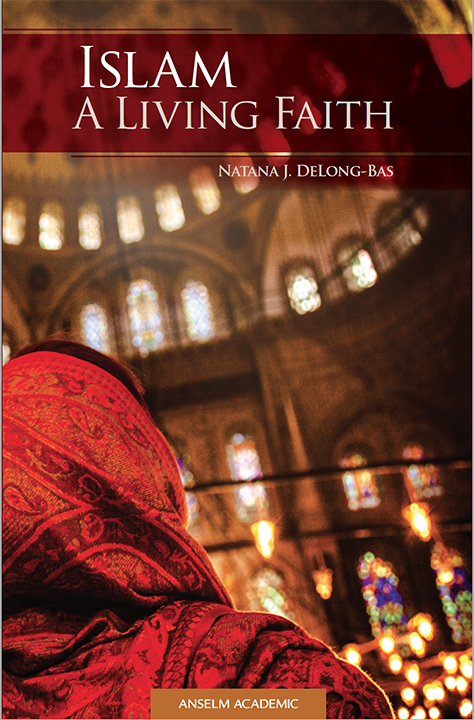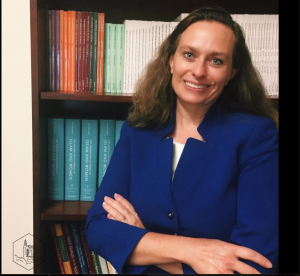Islam: A Living Faith
About This Book
Overview
As the faith tradition of 1.6 billion people globally, Islam is the second-largest—and fastest-growing—of all the world’s religions. Still, many in the West harbor misconceptions about its people, practices, and beliefs.
Through rich and thorough exploration, Natana DeLong-Bas’s Islam: A Living Faith challenges ignorance with facts and false impressions with stories of lived faith. Weaving personal narratives with major historical and contemporary events and developments, DeLong-Bas skillfully and sensitively conveys the teachings, people, and practices of the Islamic faith. This introduction includes sections on the Five Pillars, the Qur’an, and the legacy of Muhammad, as well as sections on the origin of sectarian identities, the purpose of Shariah and Islamic law, the mystical tradition of Sufism, and Muslim-Christian relations. Stocked with terms, definitions, and recommendations for additional resources, Islam: A Living Faith is perfect for use in the classroom.
Natana J. DeLong-Bas is an associate professor at Boston College, where she teaches Theology and Islamic Civilizations and Societies.. She is coauthor of Shariah: What Everyone Needs to Know (Oxford, 2018) and editor-in-chief of The Oxford Encyclopedia of Islam and Women (Oxford, 2013).
Details
| Weight | .85 lbs |
|---|---|
| Dimensions | 8.25 × .50 × 5.375 in |
| Print ISBN | 978-1-59982-865-7 |
| Pages | 334 |
| Format | Softcover |
| Item # | 7083 |
|---|
Customer Reviews
Islam A Living Faith is the first textbook that I have seen that provides the lay reader and seasoned scholars alike with an accessible overview of Islam and its history, the key issues facing the faith today, and how Muslims around the world live in the twenty-first century. It is not only very well written but it also uses a unique global framework to discuss Islam that draws on the experiences of Muslim men and women from the Muslim World and the West. The book’s nuanced arguments are also well supported by solid scholarship.
DeLong-Bas has drawn upon her rich experiences as a teacher and scholar to produce an outstanding textbook on Islam. This accessible and well-written work is informed by current scholarship and includes many features that make it an attractive resource for the classroom. In particular, the study questions and recommended readings and films provide opportunities to further explore the many important issues that are addressed in each chapter. Its title Islam: A Living Faith captures well one of the great strengths of this book—it both introduces the reader to the rich history and traditions of Islam and explains how that heritage is being expressed and lived out by Muslims today.
Islam: A Living Faith is the go-to primer for those interested in understanding the fastest-growing religion on earth. DeLong-Bas gives a thorough and concise presentation of Islam’s core beliefs, practices, and historical development in an accessible and engaging narrative. The text pays particular attention to issues of contemporary concern: the difference between Sunnis and Shia Muslims; the nature of the caliphate; Sharia and Islamic law; the status of women and non-Muslims; Sufism, Islamic spirituality, and mysticism; the nature of jihad; terrorism; and Islamic ideals of governance and international relations. With reviews, discussion questions, and suggestions for further resources provided for every chapter, I highly recommend it for teachers as well as students.
DeLong-Bas provides an excellent introduction to Islam for twenty-first century readers, introducing the major themes of the faith tradition and providing engaging portraits of historic and contemporary Muslims. One among the book’s many strengths is its presentation of topics of contemporary interest within the historical framework of the Islamic faith tradition. Her model analysis of the politics and theologies of gender examines historical developments and current controversies. Coverage of the history and evolution of Muslim-Christian relations from the time of Muhammad to the present contributes importantly to scholarship as well as adds a dimension not usually covered in books introducing Islam.
In this book, De-Long Bas writes about Islam not just eruditely—but engagingly and accessibly as well. The result is a broad-ranging discussion of many key issues that skillfully lays bare the diversity and complexity of the Islamic tradition. Highly recommended for all those who have been waiting for such a lucid introduction to what has been described as “the fastest-growing religion” in the world today.
DeLong-Bas’s Islam: A Living Faith is a must read. This exceptionally well-written, informative, and engaging introduction to Islam and Christian-Muslim relations will be welcomed by teachers, students, religious leaders, and the general public.
Table of Contents
Introduction
1. The Five Pillars: Living Islam as an Individual and a Community
2. Muhammad: Biography and Legacy of the Prophet
3. The Qur’an: God’s Final Message to Humanity
4. Sunnis and Shia: The Origins and Evolutions of Sectarianism in Islam
5. Shariah and Islamic Law: Guiding Principles for Purposeful Living
6. Sufis: Saints and Subversives in the Quest for the Divine
7. Jihad: The Struggle to Live Islam and Its Teachings
8. Women and Gender
9. Muslim-Christian Encounters: Conflict and Coexistence
Index
Professional Reviews
Winona, MN: Anselm Academic, May 2018. 334 pages.
$34.95. Paperback. ISBN 9781599828657. For other formats: Link to Publisher’s Website.
Review
As someone who teaches introductory courses on Islam and Muslims nearly every semester, I have tried many different variations of textbooks as well as compilations of book chapters, articles, blogs. Every textbook written for students will inevitably be idiosyncratic, written to the context of the author’s specific academic institution as well as their methodological approaches. Some textbooks work better than others overall and some work well only in specific institutional contexts. Natana J. Delong-Bas’ book, Islam: A Living Faith, is aimed at undergraduate students, presumably in the North American context, and would be especially poignant at a church-affiliated institution, although it could also possibly work elsewhere.
A specialist in Islamic sectarianism, with a focus on Wahhabism, Delong-Bas is a clear and concise writer who knows her audience and presents up-to-date awareness of her subject matter. Delong-Bas highlights the goal of her book by explaining that it “aims to contribute to the constructive dialogue, to explore Islam as a living practice, not just a belief system, of individuals and communities” (11). She also specifically states that the book focuses on contemporary issues and lived Islam while offering historical context that provides a nuanced approach. That said, her approach seems to be fairly basic, perhaps due to her target audience, as she states, “If there is ever to be global peace, understanding, and cooperative coexistence, it must begin with knowledge, rather than fear, of the religious Other. It is in that spirit that this book was written. Readers are encouraged to set aside the fearful headlines and consider Islam in its entirety as a living faith” (12). Rather than problematizing the fact that some Americans fear the “religious Other,” Delong-Bas assumes that her audience is Christian and does not try to rock their boat by allowing them to see Muslims as fellow humans rather than a friendly “other.”
The book has a scattering of black and white photos, maps, and charts, but it is primarily text-centric. It is divided into nine chapters. The first chapter covers the significance of the five pillars for Muslims but does not offer historical context. Surprisingly, by the third page when she discusses the term ummah and introduces the history of the pillars, Delong-Bas broaches the issue of radicalization. This section is factual and brings in examples of the pillars practiced in everyday situations; it also integrates topics, such as extremism, that students enjoy learning about but that professors of Islam do not usually introduce at the beginning of a course on Islam. Many instructors build up slowly to being able to introduce sensitive topics such as extremism into the classroom, making sure their students are well developed in their understandings of the basics of Islam and Muslim hermeneutics. The end of the chapter briefly explains the difference between the pillars versus sacraments in the Christian context. The remaining chapters are thematic, covering the life and legacy of the Prophet Muhammad, the Qur’an, sectarianism, Islamic law, Sufism, Jihad, gender issues, and Muslim-Christian encounters. The topics of the chapter are presumably guided by choosing the basics as well as in the most controversial and misunderstood issues when it comes to Muslims in North America.
Delong-Bas is careful not only to present Islam as normative and prescriptive, but also to show the nuance of Muslim practice and belief across the spectrums, such as when she discusses how and where women pray in relation to men, making note of the various set-ups of prayer and the unequal access some women experience in these spaces (24). She also highlights interesting examples from contemporary Muslim experiences, such as mentioning Hajj Maria ‘Ulfah, a well-known female Qur’an reciter from Indonesia, in the chapter on the Qur’an; Amina Wadud’s leading the first women-led prayers in 2005 in the chapter on women and gender; and The 99 comic book series in the chapter on Muslim-Christian encounters. The book would have benefited from including more of these cases. Delong-Bas covers complicated topics in a short distance; in her chapter on Shariah and Islamic law, she covers the historical context of Shari’ah, fiqh, and how Islam functions in society, and then she does an excellent job discussing the negative impact of colonialism on Islamic law as well as critiquing how some “Islamic” states are often disconnected from pre-modern practices of Islamic law and “often repeat the mistakes of European authorities” (153). She broaches challenging subjects such as hudud punishments in countries like Pakistan but also is firm in her argument that these do not always reflect the intention and message of the Qur’an and earlier Muslim legal scholars. In the “Women and Gender” chapter, Delong-Bas debunks myths and stereotypes about Muslim women and then covers movements such as Islamic feminists, concepts such as gender justice, and even includes a section on discussions around the “saving” of Muslim women, referring to an article by Lila Abu-Lughod, “Do Muslim Women Really Need Saving? Anthropological Reflections on Cultural Relativism and Its Others,” which many professors of Islam in North America teach in their courses.
The book makes numerous brief references to interesting debates and controversies, but it would have benefited from going into more depth and offering examples in the main text instead of just in the footnotes. With useful review and discussion questions that can be incorporated into the classroom at the end of each chapter, the book could possibly be used in courses on Islam in church-affiliated institutions. It would most probably not work in secular private or public institutions. Islam: A Living Faith represents a commendable effort to present Islam and Muslims in a simple but critical introduction that would work in classrooms at church-affiliated institutions in the North American context or in a secular classroom—that is, if one were to take out a few short sections. The concise and clear writing, as well as its frequent references to contemporary experiences of Muslims, make the book stand out as being accessible to students from Generation Z as well as relevant to teaching Islam in the 21st century.
About the Reviewer(s):
Rose Aslan is Assistant Professor at California Lutheran University.
Date of Review:
March 18, 2020
About the Author(s)/Editor(s)/Translator(s):
Natana J. DeLong-Bas is Associate Professor at Boston College, where she teaches Theology and Islamic Civilizations and Societies.. She is coauthor of Shariah: What Everyone Needs to Know (Oxford, 2018) and editor-in-chief of The Oxford Encyclopedia of Islam and Women (Oxford, 2013).



